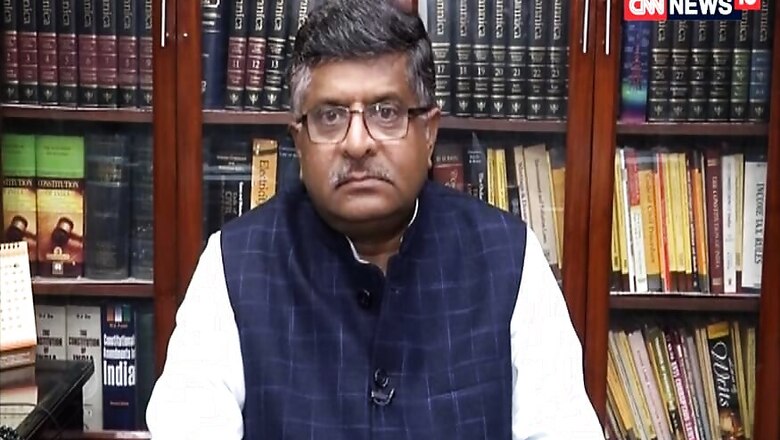
views
New Delhi: Right after the three new Supreme Court judges took oath on Tuesday, Union Law Minister Ravi Shankar Prasad said that there was no way Justice KM Joseph, who was two-and-a-half-years junior to Justice Indira Banerjee as a judge, could be allowed to take oath before Justice Banerjee.
Claiming to speak on the judicial controversy for the first time, Law Minister Ravi Shankar Prasad lashed out at reports suggesting a bias in judicial appointments and stated that the government had only gone by convention.
"We want to appoint only the best judge. India is a country of diversity. To promote someone, will you overlook at other 40 senior high court judges? Banerjee became a judge in 2002 and Joseph became judge in 2004. How can we allow a two-year senior to take oath next," said Prasad.
Union Law Minister's statement on judicial appointment was not made keeping the sanctity of collegium aside where Ravi Shankar Prasad questioned the wisdom behind the SC decision to strike down the National Judicial Appointments Commission.
"When we depend on PM so much, can't we depend upon him to appoint a judge? We respect the NJAC verdict and we will see what to do later on it," said Prasad.
Earlier when News18 reached out to former apex court judges, there was a unanimous view of no "written convention" being present and that mostly "the senior most high court judge is administered the first oath unless a member from the Bar too takes oath.
Law Minister Prasad also stated that as a "law minister" he was a minister and not a post office to transfer files from High Court to Supreme Court and vice versa.
Recently even the finance minister Arun Jaitley posted on Facebook and said, “The Constitution envisages an important role for the executive. It is a part of the democratic accountability. Past experiences perhaps weighed with the court in diluting the role of the executive in judicial appointments. The executive can give inputs, it can even refer a recommendation back with relevant inputs for reconsideration but is eventually bound by the recommendations. This is contrary to the text of the Constitution.”
On 6 October, the Supreme Court decided to disclose its rationale for recommending candidates to the government. It would include reasons for names recommended or rejected by the collegium, comprising the five senior-most judges of the apex court, to the government for its consideration.
















Comments
0 comment